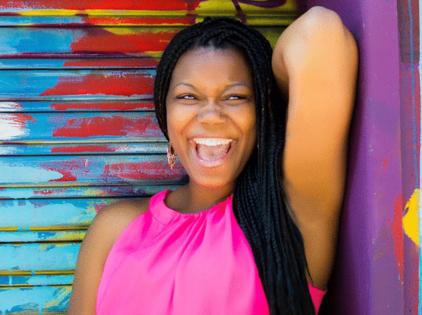Atlanta activist calls for end to judgment and stigma around HIV
Published in News & Features
ATLANTA — Atlanta HIV educator and activist Masonia Traylor is calling for extensive outreach efforts to convey the risks of HIV to Black women and Black gay men in Georgia. She sat down with The Atlanta Journal-Constitution to explain how stigma hampers efforts to reach at-risk populations.
Q: Atlanta has the third-highest rate of new HIV infections in the U.S., after Miami and Memphis, Tennessee, and new infections among Black Georgians make up the majority of new cases. Why is this happening?
Masonia Traylor: There’s stigma pertaining to anything related to HIV. There’s a lack of mass education about HIV. When people do know about PrEP drugs that can help keep HIV negative people negative, they associate it with LGBTQI community.
When we do talk about PrEP, there’s pushback — people ask ‘why would you need to be on PrEP?’ It’s not unlike discussions around needing to be on birth control.
Many Black women just have never heard of PrEP. I can have a room with 30 women, and maybe one woman will know about PrEP. There’s a lack of marketing around sexual health in general.
Q: What must happen to make PrEP more accessible to Black Georgians?
MT: PrEP is an intervention that would help a lot of people. But we are going to have to educate providers that it’s available for both men and women. Community based organizations will have to offer it, OB-GYNs will have to offer it, Minute Clinics at CVS will have to offer it. It will have to be free for some people. I used to be a pharmacy technician, and I know that we have to educate more pharmacists.
Q: You speak and write often about the stigma attached to discussing HIV in Black communities. Why can there be stigma around HIV in these communities?
MT: People weaponize and villainize HIV. People will say that they don’t want us around. That still happens today in 2025.
There was a narrative that HIV was happening in Black women due to the crack epidemic. Or due to gay men, or due to a woman’s supposed promiscuity. The conversation in the Black community is not as accepting as in the gay white male community. I am one of two cisgender Black women talking about her diagnosis. I know thousands of women who don’t feel it’s anyone’s business. Many women say ‘Why would I allow someone in my business?’ Georgia is a right-to-fire state. Women can lose housing. There are so many possibilities for discrimination in a discussion around HIV.
When you’re living with the diagnosis, you are told to live as if you don’t have it all. You have HIV, you take medications to keep yourself alive, so you can live as if you didn’t have it. Yet what you carry with you in spirit and mentality is the feeling that you’re carrying this sickness inside you. There are moments when you want to have freedom beyond taking pills to stay alive. Freedom from constantly going to the doctor’s office.
We have to destigmatize HIV so that people who are living with HIV will actually feel comfortable talking about it.
Q: What role does trauma and shame play in the HIV crisis we are seeing in Atlanta?
MT: People feel an enormous sense of shame when they learn that they have something that is potentially life changing. People sometimes think, ‘If no one else cares, why should I?’ An HIV diagnosis is a traumatizing event that doesn’t have a psychological diagnosis. It should be listed in DSM 5 (the Diagnostic and Statistical Manual of Mental Disorders), and I am advocating for this.
I am also worried about a world in which young physicians are coming into practice without understanding HIV, because it wasn’t part of their experience.
I know that women are engaging in condomless sex with men they know to be HIV positive. I have met sex workers who are learning about PrEP after their diagnoses.
My message is, PrEP needs to be available to everyone who needs it. That goes for straight men, too — if cisgender heterosexual men were on PrEP, it would help put an end to HIV in women and children.
People are still dying of HIV. It’s still happening, it’s just not something we are talking about anymore.
Masonia Traylor talks about her work in “Unexpected,” a documentary on Hulu about an underground network of women helping women cope with and survive an HIV diagnosis in the rural South.
©2025 The Atlanta Journal-Constitution. Visit at ajc.com. Distributed by Tribune Content Agency, LLC.







Comments